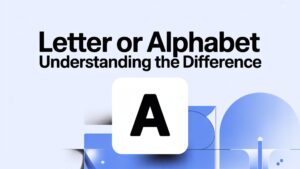When it comes to English grammar, even native speakers often get tripped up by the smallest of details. One of the most common grammar confusion points is the pluralization of certain words especially those that end in “y”.
That brings us to today’s hot topic: What is the plural of journey? Is it journeys or journies?
Let’s dive deep into this linguistic crossroads and uncover the correct plural of journey, explore relevant grammar tips for plurals, and clear up the confusion between journeys and journies once and for all.
The Quick Answer: Is It Journeys or Journies?
The correct plural of journey is journeys.
So if you’re here for a fast grammar check, there you go. Journies is a spelling mistake and not recognized in standard English.
The Journey Plural: Why Not “Journies”?
Many learners (and sometimes writers) mistakenly apply the “Words ending in Y plural rule” too broadly. The rule goes like this:
Vowel + Y vs. Consonant + Y Rules
- If a word ends in a vowel + y, just add -s.
- Examples: toy → toys, key → keys, journey → journeys
- If a word ends in a consonant + y, change the “y” to “i” and add -es.
- Examples: city → cities, puppy → puppies
Since journey ends with a vowel + y (the letter “e” is a vowel), we simply add an -s to make it plural. That’s why the journey plural is journeys—not journies.
Spelling Rules and Common Mistakes
The word journies often appears due to a misapplication of spelling rules. In casual writing or even blog posts, you might find the misspelled version.
Example of a Common Mistake:
“I took five journies across Europe last summer.”
That should be:
“I took five journeys across Europe last summer.”
This kind of journey plural mistake often pops up in travel writing, student essays, and social media.
Journey Grammar Example in Email Format
Let’s see a practical example where someone uses the plural form correctly and incorrectly in an email:
❌ Incorrect Example:
Subject: Reflections on My Recent Journies
Hi Alice,
Just wanted to share a few thoughts from my recent journies across the Pacific Islands. Each place offered something unique.
Thanks, James
✅ Correct Example:
Subject: Reflections on My Recent Journeys
Hi Alice,
Just wanted to share a few thoughts from my recent journeys across the Pacific Islands. Each place offered something unique.
Thanks, James
This small spelling tweak completely changes the professionalism and grammatical accuracy of your writing.
Etymology of “Journey”

Understanding the etymological roots of journey can give you deeper insight into why the plural behaves the way it does.
The word “journey” comes from the Old French jornee, which means a day’s travel or a day’s work. That, in turn, comes from the Latin diurnata (from diurnus, meaning “of the day”).
This historical meaning ties in beautifully with the metaphor for life’s journey—something we’ll explore in a moment.
Grammar for ESL Learners: Educational Grammar Clarification
For those learning English as a second language, pluralizing words correctly is a major milestone. Here are some grammar tips for plurals focused on the word “journey”:
- Always look at the letter before the “y”. If it’s a vowel, just add -s.
- Never rely solely on how a word sounds. Journies may look fine at first glance, but it’s incorrect.
- Use online dictionaries to confirm correct plural forms of unfamiliar words.
Literal and Figurative Use of Journey
Literal Travel Example:
“After two years of savings, Emma and Lucas finally began their journeys around the world.”
Metaphorical Usage of “Journey”:
“Grief and healing are not events—they’re ongoing journeys that shape who we become.”
The word journey carries strong emotional and symbolic meaning, which makes it a staple in metaphorical language in writing.
Common Language Misconceptions
Let’s look at some common language misconceptions that cause confusion:
- Misconception: All words ending in -y follow the same rule for pluralization.
- Truth: Only consonant + y words change to -ies.
- Misconception: “Journies” is an acceptable alternative spelling.
- Truth: It’s simply incorrect.
- Misconception: Words that sound fancy must have irregular plural forms.
- Truth: Journey is a regular plural despite its literary flair.
Travel Writing Tips and Language

If you’re writing a travel blog, article, or memoir, getting the plural forms of travel-related vocabulary right matters.
Examples of Plural Journey in Travel Writing:
“Her memoir recounts the spiritual and physical journeys she took through India, Nepal, and Tibet.”
“The guide covers the best gear for long-distance journeys and adventure travel.”
Use varied synonyms for travel to keep your writing fresh:
- Voyages
- Expeditions
- Treks
- Pilgrimages
- Excursions
- Odysseys
Irregular vs Regular Plurals: Where Journey Falls
The word journey belongs to the category of regular plural nouns in English. Unlike tricky words like analysis → analyses or syllabus → syllabi, journey behaves predictably.
Other examples of regular pluralization:
- Table → Tables
- Car → Cars
- Journey → Journeys
Compare with irregular plural nouns:
- Child → Children
- Foot → Feet
- Mouse → Mice
Understanding these rules for forming English plurals will help avoid future errors.
Words Like Journey: Spelling Exceptions in English
Let’s explore more spelling exceptions in English to reinforce how the rules apply differently:
| Word | Ends in | Rule Applied | Correct Plural |
|---|---|---|---|
| Journey | -ey | Vowel + y → +s | Journeys |
| Country | -try | Consonant + y → -ies | Countries |
| Toy | -oy | Vowel + y → +s | Toys |
| Party | -rty | Consonant + y → -ies | Parties |
Seeing these side by side helps internalize English spelling patterns.
Journey in Metaphorical Context
Let’s take a creative detour and look at how journey enriches metaphorical writing.
Examples:
- “Motherhood is the most beautiful and chaotic journey of all.”
- “His recovery from addiction was a difficult journey, marked by setbacks and breakthroughs.”
Whether you’re crafting poetry, speeches, or stories, this versatile word adds emotional weight.
How to Pluralize Words Ending in Y
Let’s recap the rules for how to pluralize words ending in Y:
Rule 1: If a consonant comes before the y, change y → ies
- Penny → Pennies
- Story → Stories
Rule 2: If a vowel comes before the y, just add -s
- Monkey → Monkeys
- Journey → Journeys
These rules aren’t just helpful—they’re essential for accurate writing.
Plural Forms of Tricky English Words
Here are some plural forms of tricky English words to compare:
| Singular | Plural | Type |
| Journey | Journeys | Regular |
| Analysis | Analyses | Irregular |
| Software | Software | Uncountable |
| Syllabus | Syllabi/Syllabuses | Irregular |
These comparisons reveal how unpredictable English grammar rules explained can be.
Final Word: Journeys vs Journies
So, let’s end this educational grammar clarification with a quick summary:
- The correct plural of journey is journeys.
- Journies is incorrect and should never be used.
- Always follow the vowel + y vs. consonant + y rules.
- When in doubt, check the word’s etymology, spelling rules, and examples in use.
If you’re writing about literal and metaphorical travel, getting your grammar right adds clarity and professionalism.









